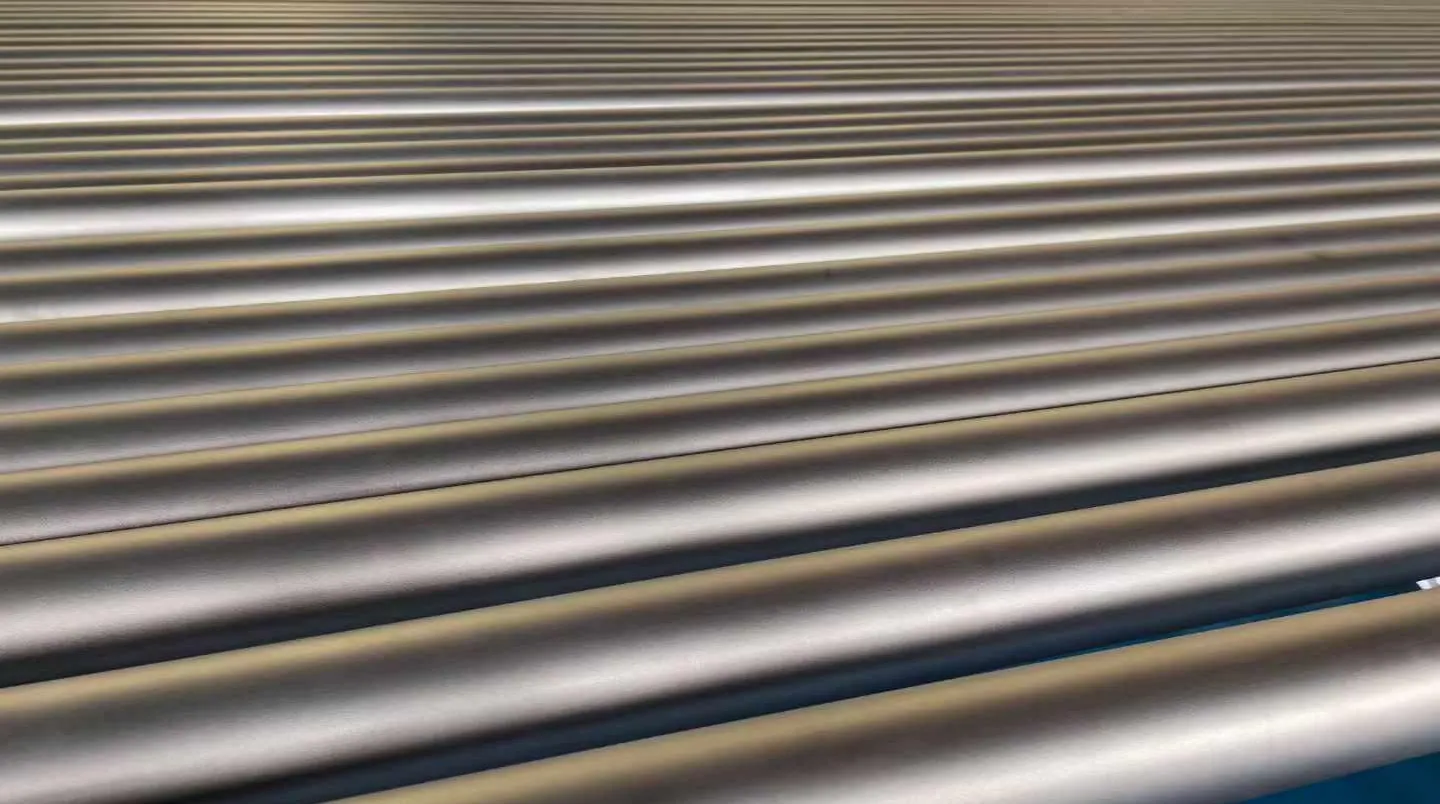Super Stainless Steel 254 SMO to Replace Super Duplex Steel in Desalination Engineering
Seawater reverse osmosis desalination, a technology widely applied to solve water shortages, involves an important item: a steel tube which is capable of withholding approximately 1,000 psi(6.9MPa) to screen the salt through a semi-permeable membrane at osmotic pressure and allow water molecules to pass through. Besides, this pipe must maintain good corrosion resistance under the seawater of 7% salinity, so that to guarantee the life of the equipment.
In previous experience, 2507 super duplex pipe is the preferred material for seawater desalination equipment. However, for super duplex stainless steel pipe and fittings (or ferrite stainless steel/duplex steel), their disadvantages are also obvious, such as poor weldability. It will cause potential risks. Besides, if the balance of austenite and ferrite cannot be maintained in the welded joint, the mechanical properties, toughness and corrosion resistance of the welded joint will be significantly reduced.

Advantages of 254 SMO in Seawater desalination Applications
The defects of duplex stainless steel pipes and fittings in desalination projects make it possible to be replaced by other new products. Now, there is a new one — 254 SMO (UNS 31254) material. For this new material, it has excellent corrosion resistance (pitting corrosion equivalent value exceeds 40), impact toughness, chloride stress corrosion cracking resistance as well as good machinability and weldability. For welding, cautious quality control and documentation are the critical step to ensure a long service life of the components and avoid costly future repairs. Due to the sensitivity of 254 SMO towards heat, cracks, side wall biting, and lack of penetration may be easy to occur. Regarding on this, radiographic testing is helpful in detecting these types of defects. For 254 SMO pipes, the weld is required to go through full inspection.
In seawater Reverse Osmosis (RO) technology, pipe is required to maintain high seawater corrosion resistance and long service life under high pressure conditions after welding. Compared with other alloys, 254 SMO can achieve this. However, the risks brought by its defects such as hot cracks should be reduced by careful monitoring and planning during welding process. Meanwhile, the training of skilled welding operators is also key to the success of desalination projects.
254SMO Compare with Super Duplex Stainless Steel 2507
Though duplex steel has been started to be widely used in the last decade, in many developed countries, especially the United States, Germany, Britain, Sweden, France, Netherlands, Norway and others, or the United Arab Emirates, Saudi Arabia, Qatar, Kuwait, Singapore and other rich countries and developing countries such as China, duplex stainless steel has been widely accepted and applied in many offshore projects and desalination projects.
Compared with duplex stainless steel 2507, the acceptance of 254 SMO is still low, and its cost and convenience. On price, the price 254 SMO is two times higher than duplex stainless steel 2507. And 254 SMO is rarer and harder to get, especially when the quantity is very small. Therefore, when manufacturing the elbows or pipe fittings of 254 SMO, it is very difficult to buy the raw materials
Our Advantages of 254 SMO
After developing for several years, our factory has gained sophisticated experience in manufacturing 254 SMO materials. Currently, our company focuses on providing 254 SMO pipes and fittings, flanges and valves, especially 254 SMO seamless steel pipes and fittings. We can guarantee the quality of our products while controlling the cost. For ASTM A182 F44 flanges, we can accept small quantities and fast delivery.



